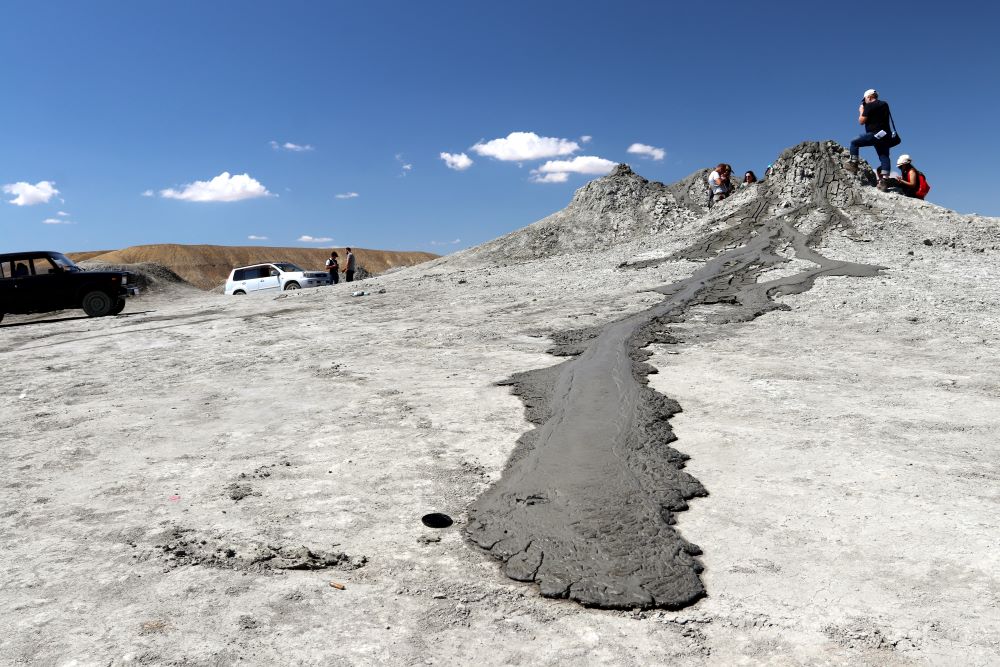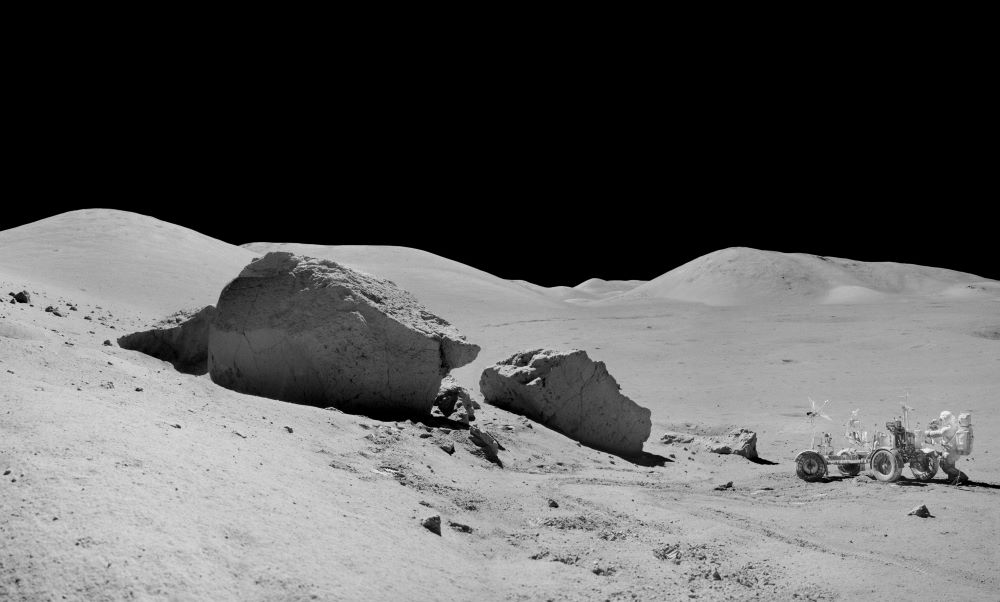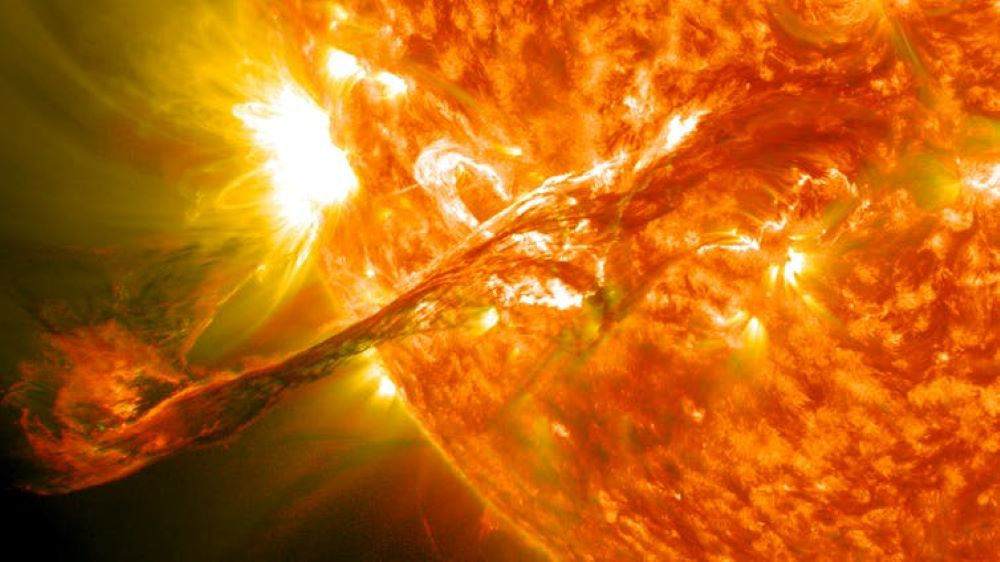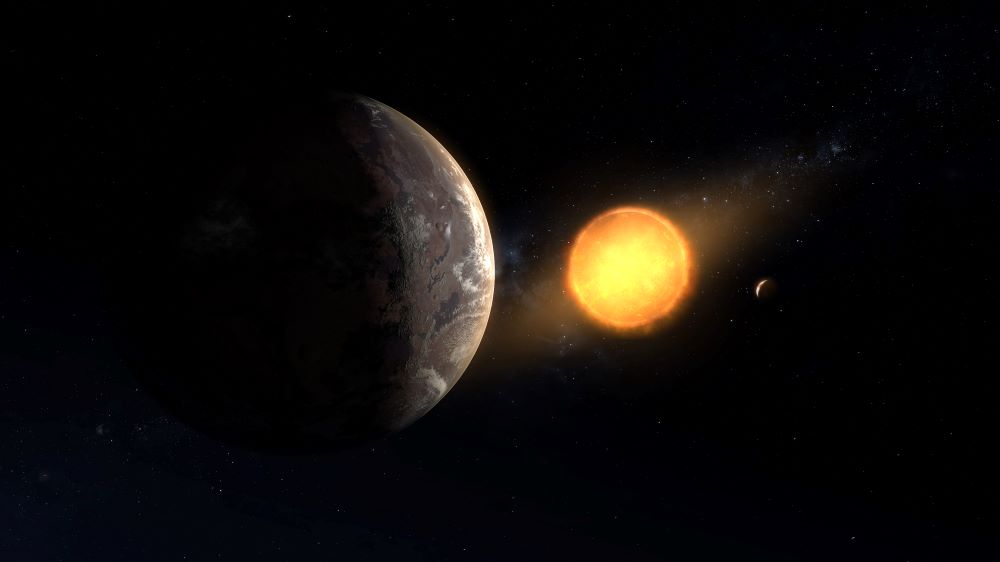OU News
News from The Open University

Newly detected green light similar to the Aurora Borealis observed around Mars
Open University (OU) scientists, as part of an international team, have identified a never-before-seen, green glow surrounding Mars with the same characteristics as the Aurora Borealis, also known as the Northern Lights. Using the NOMAD-UVIS instrument onboard the ExoMars Trace Gas Orbiter (TGO), a joint space mission between the European Space Agency (ESA) and Roscosmos, […]
Read more about Newly detected green light similar to the Aurora Borealis observed around Mars

Studying tips for a healthy and happy mind
The current global pandemic has seen a rise in mental health related illness. With this week marking Mental Health Awareness Week (18-24 May), it’s important now more than ever to take time to be kind to ourselves. Open University (OU) student Liz Fox is in her second year studying towards a BSc in Psychology. In addition […]

New study reveals mud volcanoes on Mars may flow like lava
European researchers, including Dr Manish Patel, Dr Matt Balme and Dr Matthew Sylvest from The Open University(OU), have found that mud volcanoes on Mars may look similar to lava flows found on Earth. According to a study, published in Nature Geoscience, mud flows exposed to the low atmospheric pressures found on Mars will behave similar […]
Read more about New study reveals mud volcanoes on Mars may flow like lava

Apollo 17 sample leads to new discovery of the Moon’s evolution
An international team of scientists, including Mahesh Anand, Professor of Planetary Science and Exploration at The Open University, have discovered new evidence that massive impact events formed large portions of the Moon’s crust. According to research, published today in Nature Astronomy, the formation of ancient rocks on the Moon may be directly linked to large-scale […]
Read more about Apollo 17 sample leads to new discovery of the Moon’s evolution

Inflation or deflation – which would be worse right now?
Alan Shipman, Lecturer In Economics at The Open University, discusses whether inflation or deflation would be worse for the UK economy in the current climate. Inflation among the 37 member states of the Organisation for Economic Co-operation and Development (OECD) fell from 2.3% in February to 1.7% in March. With all the damage to global health […]
Read more about Inflation or deflation – which would be worse right now?

Ancient rivers on Mars more than 3.7 billion years old
Scientists from around the globe have discovered evidence of ancient rivers on Mars more than 3.7 billion years old, using high-resolution 3D imaging data. Sedimentary rocks, found in a 200-metre high Martian rocky cliff, formed by the ancient rivers proves that water was not only present on Mars, but the rivers were probably active for […]
Read more about Ancient rivers on Mars more than 3.7 billion years old

The Sun: study shows it’s less active than sibling stars – here’s what that could mean
Andrew Norton, Professor of Astrophysics Education at The Open University, writes about the magnetic activity on the Sun and what this could mean. All stars emit varying amounts of light over time – and the Sun is no exception. Such changes in starlight can help us understand how habitable any planets around other stars are […]

OU develops world’s first COVID-19 digital immunity passport
Tech experts from The Open University (OU) have developed the world’s first digital application to certify COVID-19 immunity test results. Researchers from the OU’s Knowledge Media Institute have created a prototype mobile phone app that enables instant verification of tamper-proof coronavirus test results and vaccination certificates. Immunity passports backed by government In recent weeks, the […]
Read more about OU develops world’s first COVID-19 digital immunity passport

OU leads the way with £1 million software engineering project
Researchers from The Open University (OU) spearhead a £1 million project, funded by the Engineering and Physical Sciences Research Council (EPSRC), to change the culture of software engineering. The socio-technical resilience in software development project, also known as STRIDE, will challenge the focus of software engineering on automation and new technologies, to put people at […]
Read more about OU leads the way with £1 million software engineering project

New, Earth-sized planet found in habitable zone
A team of scientists from around the world have discovered an Earth-size exoplanet orbiting in its star’s habitable zone, the area around a star where a rocky planet could support liquid water. Scientists from The Open University, NASA, University of Texas, SETI Institute and the Harvard-Smithsonian Center for Astrophysics discovered a new planet, called Kepler-1649c, […]
Read more about New, Earth-sized planet found in habitable zone
Page 33 of 36